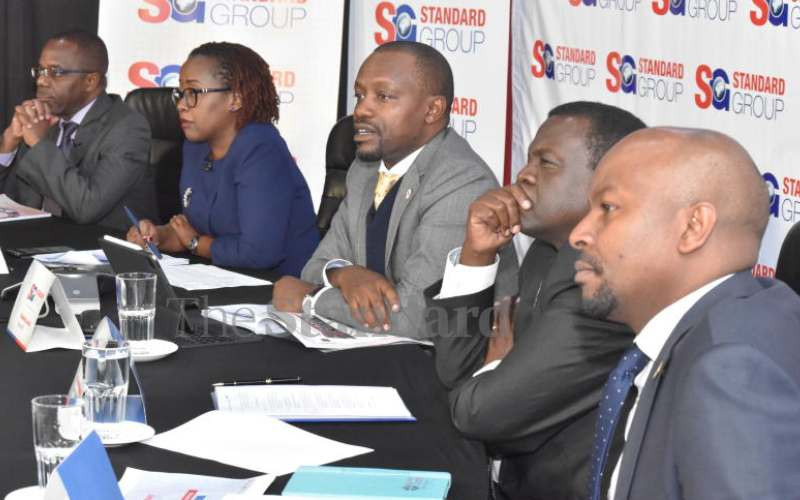
The major investments that the Standard Group has made over the recent years are expected to break even earlier than expected.
Standard Group Chief Executive Orlando Lyomu yesterday said the business products in the television and radio segments launched in 2019 are already raking in good revenues.
Mr Lyomu, who spoke at the company’s 104th annual general meeting, said initial reports indicate that the products had been well received in the market and are likely to break even ahead of the projected period of five years after launch.
“The maturation period for investments such as radio and TV are about five years but we have seen some of these stations register good revenues in less than five years,” he said.
“The investments may have been painful but should prepare us for takeoff.”
Among the products recently launched and showing great promise include Spice FM, Vybez Radio, Berur FM, KTN Farmers TV and Burudani TV.
Additionally, the company launched the Standard Courier last year, which utilises excess capacity in the newspaper circulation fleet to ferry parcels and other goods to various parts of the country.
The courier service required little investments, Mr Lyomu told shareholders. “We are trying to grow without incurring heavy investment costs. In the case of Standard Courier, we are taking advantage and utilising some of the idle capacity in our newspaper circulation fleet.

“We are seeing some encouraging growth and hope that this can expand to be a critical revenue line for the business.”
Last year, the Standard Group also revamped some of its products as it sought to stay ahead of a market that is experiencing major shifts influenced by the digital space.
Among them include the Standard Digital and the Standard Newspaper, with both getting new looks as well as improved content.
The company also revamped its 24-hour news channel, KTN News, whose launch coincided with that of the new ultra-modern converged newsroom at its headquarters along Mombasa road. Standard Group also revamped Digger Classified, which is now primed to take advantage of the rapidly growing e-commerce industry. The renewed Digger will focus on real estate, vehicles, jobs and obituaries.
Despite the internal changes, the company grappled with other factors that were a drag to its performance during the year.
These include the local currency weakening against the US dollar, which had the impact of pushing up costs for some of its key raw materials such as the newsprint that it uses to publish the newspaper.
The shilling exchanged at an average of Sh109 to the dollar in 2020, weakening further to Sh113 in 2021 and as of June this year, it was trading at Sh117 to the dollar.
The global logistical constraints experienced when the Covid-19 pandemic hit and also due to factors such as Russia’s invasion of Ukraine continued to hamper delivery of newsprint and saw an increase in its cost.

“The overall economic environment was not the best in 2021. The Kenya Shilling weakened considerably against the US dollar. Most of our raw materials are imported and we transact in US dollars,” said Mr Lyomu.
“This meant that even as we tried to manage our costs and optimise everything that we were doing, the weakening of the shilling had the effect of increasing our operational costs because the value of every dollar translates to more shillings.”
He said international prices of newsprint had gone up to $1,200 (Sh141,600) per tonne in early 2022, from about $700 per tonne in 2021.
The company has also been grappling with high debt from government agencies. As at the end of the year, the Government Advertising Agency (GAA) and other government bodies jointly owed the Standard Group more than Sh1.3 billion.
Despite the challenges, the company registered improved performance, with its loss before tax dropping 95 per cent to Sh22 million in 2021 compared to Sh434 million in 2020.
Revenues grew eight per cent to Sh3.1 billion, driven by growth in advertising.
 The Standard Group Plc is a multi-media organization with investments in media platforms spanning newspaper print
operations, television, radio broadcasting, digital and online services. The Standard Group is recognized as a
leading multi-media house in Kenya with a key influence in matters of national and international interest.
The Standard Group Plc is a multi-media organization with investments in media platforms spanning newspaper print
operations, television, radio broadcasting, digital and online services. The Standard Group is recognized as a
leading multi-media house in Kenya with a key influence in matters of national and international interest.










